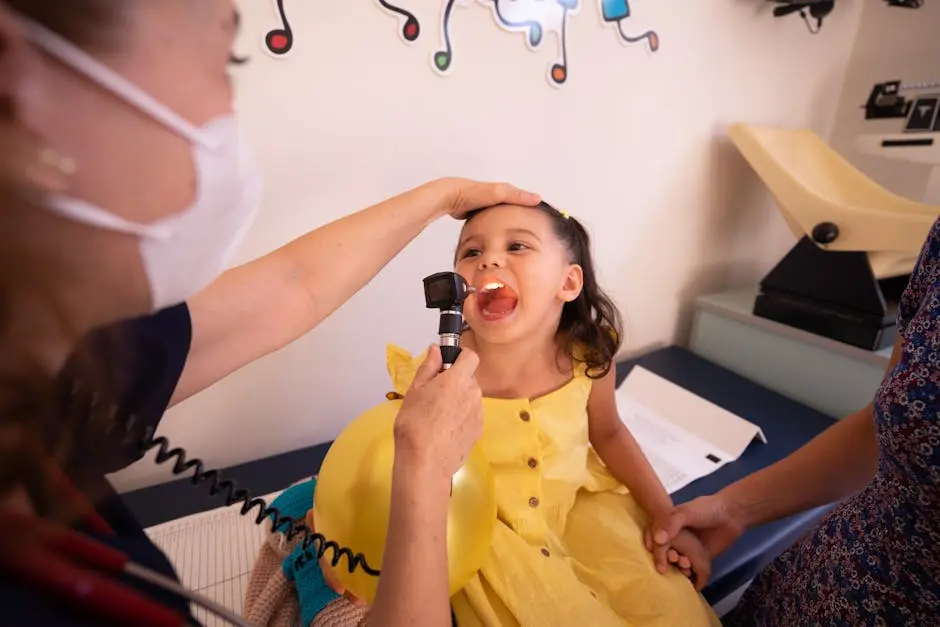Our Blog
What is Pediatric Hepatology?
November 30, 2024
Pediatric hepatology is a specialized field that focuses on the diagnosis and treatment of liver diseases in children. Understanding this branch of medicine is crucial for parents, caregivers, and healthcare professionals who deal with young patients. In this FAQ blog, we shed light on the key aspects of pediatric hepatology to enhance your knowledge and curiosity.
Understanding Pediatric Hepatology
Pediatric hepatology specifically targets the liver’s role in children’s health. The liver is a crucial organ, responsible for many functions, including detoxification, protein synthesis, and digestion of food. Without a healthy liver, children’s growth and development can be severely impacted.
This subspecialty operates at the intersection of pediatrics and gastroenterology, emphasizing the unique challenges children face. It involves a team of experts who understand how liver diseases manifest differently in young patients compared to adults.
An essential part of pediatric hepatology is understanding that liver diseases are not just adult issues. Congenital liver diseases, autoimmune disorders, and metabolic syndromes often emerge in childhood, necessitating specialized care.
By focusing on pediatric patients, healthcare practitioners aim to improve health outcomes through careful monitoring and timely interventions. Parents must be aware of liver health to advocate effectively for their child’s well-being.
Common Liver Diseases in Children
Among the various liver diseases that affect children, biliary atresia is one of the most significant. This condition occurs when the bile ducts are not properly formed, leading to liver damage and requires surgical intervention early in life.
Another common issue is hepatitis, which can be viral, autoimmune, or toxic. Symptoms may vary, but jaundice, fatigue, and abdominal pain are often indicators that should prompt immediate consultation with a healthcare provider.
Furthermore, non-alcoholic fatty liver disease (NAFLD) is a growing concern associated with obesity in children. Regular check-ups and lifestyle modifications play a crucial role in preventing its progression.
These diseases highlight the importance of specialized care in pediatric hepatology, where early diagnosis and tailored treatments can mitigate complications and promote healthier futures for affected children.
Symptoms of Liver Problems in Kids
Recognizing the symptoms of liver problems in children is vital for timely intervention. Common signs include persistent fatigue, unusual bruising, and abdominal swelling, which can often be mistaken for other less concerning ailments.
Parents should also look for skin changes, such as jaundice, which occurs when the liver cannot process bilirubin effectively. This yellowing of the skin and eyes can be a major signal that something is amiss.
Changes in appetite, poor growth, or weight loss are also potential indicators of liver issues. Children may become more irritable or experience a decline in their usual activity levels. Awareness of these symptoms is crucial in ensuring prompt medical evaluation.
When parents are vigilant and informed about these symptoms, they can seek necessary medical help that may prevent more severe health issues down the line.
Diagnosis and Tests
Diagnosing liver issues in children requires a comprehensive approach. Initially, doctors will conduct a thorough medical history and physical examination to evaluate symptoms and possible risk factors.
Blood tests are often the first step in diagnosis. These can assess liver function, check for hepatitis viruses, and measure enzymes that indicate liver inflammation or damage.
Additionally, imaging studies like ultrasounds or MRIs may be utilized to visualize liver structure and detect abnormalities. Such non-invasive tests are essential in forming effective treatment plans.
In some cases, a liver biopsy might be necessary to provide a definitive diagnosis. Although it sounds intimidating, this procedure is often performed under sedation, minimizing discomfort for the child.
Treatment Options Available
Treatment options in pediatric hepatology vary widely based on the specific liver condition. For some diseases, dietary changes and medication can effectively manage symptoms and improve liver function.
In more severe cases, surgical intervention, such as a liver transplant, may be the best course of action. This is particularly true for conditions like biliary atresia, where early surgery can save lives.
Other treatments may include immunosuppressants for autoimmune liver diseases or antiviral medications for viral infections. Regular follow-ups are crucial to monitor the child’s response to treatment and adjust care plans as needed.
Ultimately, collaborative care from a team of specialists ensures that children receive the best possible outcomes. Parents play an integral role in this journey by staying informed and advocating for their child’s needs.
Importance of Liver Health Monitoring
Monitoring liver health in children is essential for detecting issues before they escalate. Regular check-ups allow healthcare providers to evaluate liver function and assess for potential risks.
Parents must be proactive in scheduling routine evaluations, especially if there is a family history of liver diseases. Early detection can significantly impact treatment success and long-term health.
Keeping a watchful eye on a child’s diet, physical activity, and overall well-being also contributes to liver health. A balanced diet, rich in nutrients, can support healthy liver function.
In summary, by prioritizing regular monitoring and maintaining a healthy lifestyle, families can safeguard their children’s liver health and promote their overall wellness.
Final Thoughts on Pediatric Hepatology
Pediatric hepatology is a vital area of medicine that addresses liver health in children. Recognizing the importance of early diagnosis and treatment can make a significant difference in a child’s health outcomes. We hope this blog has provided you with valuable insights and encourages you to seek further information when needed.
